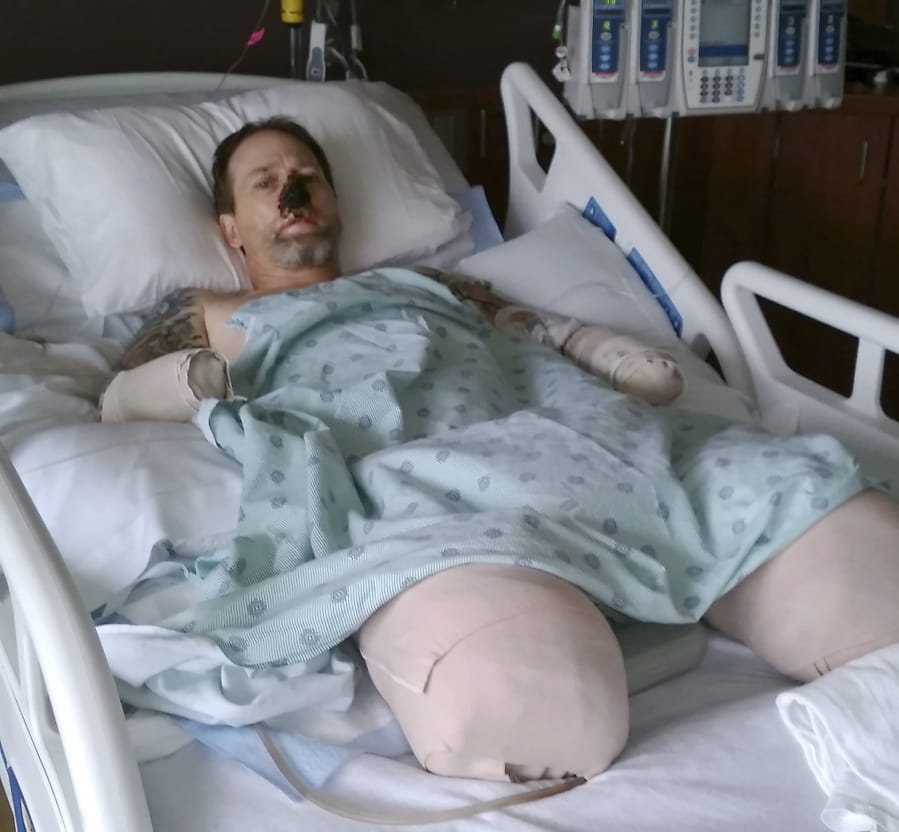WEST BEND, Wis. — It’s hard to regard Ellie as a menace.
When Greg Manteufel is frustrated or feeling down, she sits by him. At night, she sleeps under his covers. At dinner, she’s there next to him, knowing he’ll throw something her way. She belies the stereotype of the vicious pit bull.
“We love her like she’s our daughter,” he said of the dog.
And yet, Ellie may be the reason Manteufel, 49, nearly died.
Gravely ill, he lost parts of his arms and legs, as well as the skin of his nose and part of his upper lip. The cause was capnocytophaga, a germ from Ellie’s mouth or from another dog he encountered.
Capnocytophaga is commonly found in the saliva of cats and dogs and almost never leads to people getting sick, unless the person has a compromised immune system. But Manteufel was perfectly healthy. In fact, he doesn’t think he’d ever used his health insurance before he fell ill.
The case is extremely rare and doctors at his hospital, Froedtert & the Medical College of Wisconsin, had no explanation for why he got so sick. But over the last 10 years there have been at least five other healthy people who have had severe reactions to the germ. A team of researchers connected with Harvard Medical School has developed a theory on why — a gene change in all the victims.



